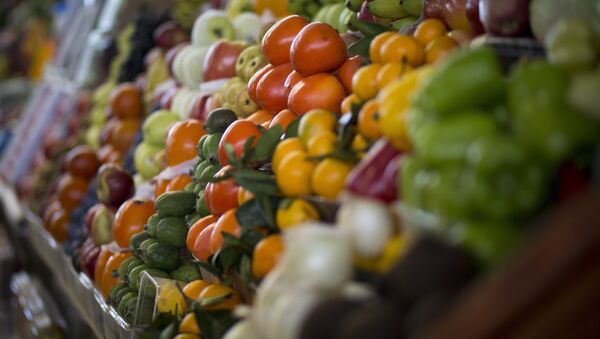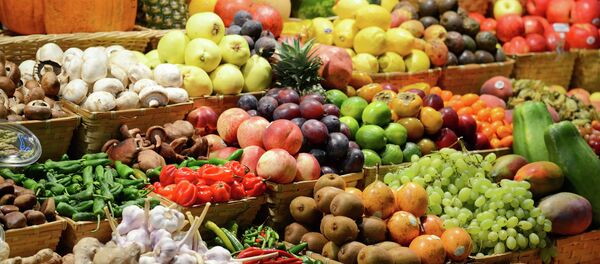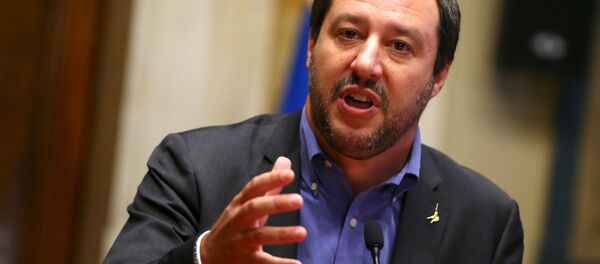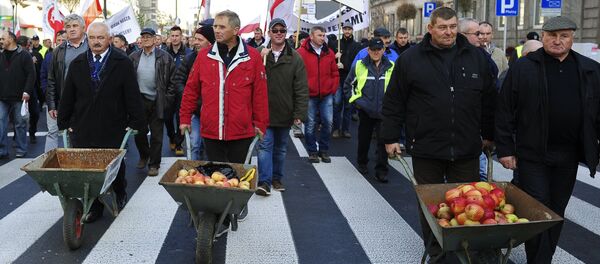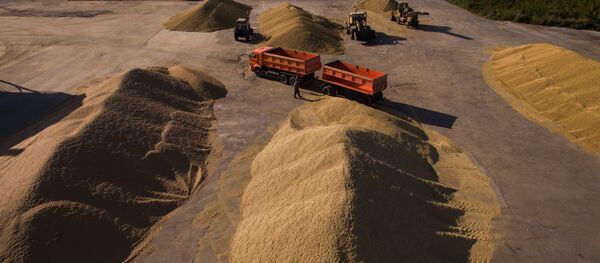Sputnik: What are your impressions from this year‘s forum here in Vladivostok?
Riccardo Valentini: This is for me the second time here, so I see some progress. It's a very fascinating region and there a lot of things occurring every year, so this year I found very interesting the discussion on innovation and how to better use the regional geographic position of Asia as a hub for producing more innovation. That, I think, was very interesting to me.
Sputnik: Does the region have potential when it comes to solving environmental problems, environmental issues? And what are they? Can it be a testing ground for some new innovation when it comes to ecology?
Riccardo Valentini: Exactly, this was my point yesterday at my session when we spoke about the future. I think that instead of thinking here of a big factory hub like automotive or aerospace or whatever… we think that development is associated with big, big things, but indeed here there is a great opportunity for developing green technologies.
So for me, the future is absolutely soft technology, green technology, a green economy, and it's very close to China, Korea — these countries are today already on the path of a sustainable economy. China has changed a lot in the last years and they're very interested in these things, and so I think this is the future for me: creating, advancing in innovation by using natural resources, and by also using technology that's not harming the environment.
READ MORE: Forget Russia: NATO Officials Say Bad Canteen Food Among Alliance's Big Problems
Sputnik: The population in most Asian countries is growing, the economy is growing; can Russia's Far East present something which will be of use to these regions when it comes to food processing, food growing, agricultural technology? In Europe, we see that on very small lots of land, farmers are able to grow huge amounts of vegetables and fruit. Why hasn't something like that been done here? What are the obstacles? What do you think has to be done?
Riccardo Valentini: Indeed today there is a great demand for (high) quality food, more than quantity. Although we see everyday questions, like "the population is growing and are we able to feed the people?"
But, indeed, the problem of the agro-industry system is not really quantity, because we have a paradox currently: we throw away food: about 40% of the food we produce, we waste. Or, for example, we have people that eat too much and there's a problem of health. Obesity and diabetes are modern diseases and they're associated with an excess of food or not-good food, so high quality and healthy food have become the new trend.
For example, we have an average size of four hectares, so it is nothing compared with Russian dimensions, but still, we have a family that has very good wealth, today this family is growing wines of high-quality or high-quality products using organic certification, it's very important also. They sell in the market and also export in Europe and abroad.
And these little farmers or young farmers, sometimes very young farmers, are today the new middle class in Italy. Frankly speaking, they have enough wealth to bring children to school, it's not like after the Second World War when there were very poor farmers. So this big transformation was done through this high-quality produce.
READ MORE: Italy's Enel Renewable Energy Giant Believes in Russia's Innovation Potential
I think in Russia there's a lot to do and this region, of course, has potential exporting food to China or to Asia, and there is in Japan and China a lot of (demand) for healthy food and good food, so again, this is another soft economy that can bring business here.
Of course, there's a need for technology, innovation, for example, in this region: I've been studying here some of the problems of agriculture, there's some limitation (related to) excessive floods and water, but with innovative technology, with some colleagues here, we are working together and are testing a new way to drain the water from the soil so now they have very good production, so there are many things that can be done here, particularly, for the environment also, is the branding of quality.
I think it's a more general problem for the Russian Federation where the agriculture has grown so much thanks to the sanctions, the sanctions actually stimulated that.
Sputnik: But they hurt Italian farmers, don't they?
Riccardo Valentini: Absolutely, for us, it was a disaster, I don't know why we accepted these sanctions. Russia is one of the major partners we have in the world. It was very bad, and I know that now our new government is really trying to lift the sanctions because it's bad for our economy, bad for our relations, and as you know, historically, Russia and Italy have always been closely collaborating, so hopefully they will be lifted.
But this I see that this has been a very big stimulus for Russian agriculture and I published a study recently about the expansion of wheat cultivation in Russian Federation, and we showed that in the future, thanks also to climate change, there will be 40 million hectares more available for wheat cultivation. Russia was the first country to export wheat in the world, and if you remember the 95 crisis, Russia was importing wheat. So a big transformation, but still there's a question of quality, certification, trust, and having food that is really labeled and can also be sold abroad.
READ MORE: EU Prolongs Sanctions Against Russia "Over Ukrainian Conflict" by 6 Months
We have launched a new collaboration called the Italy-Russian Platform for Agro-Industry Wellbeing. It's an approach that involves my university, the University of Tuscia near Rome, and the University of Orel, in Orel region, plus Timiryazev Academy in Moscow and other actors that will come. It's the idea to change technologies for food processing and for certification particularly, so we're developing collaboration between Italy and Russia, first a science laboratory to create better standards for certification.
This also in collaboration with Rosquality, I have to say, they're very interested in following us. So we've created this platform that I think is very innovative, because there's a lot of potential for agriculture in Russia and at the same time Italy has a history of transforming food technology, so the combination of two teams, it will be very interesting, because I strongly believe that in the future, the Russian Federation will have a leading role in the food system of the world.
Sputnik: In your opinion, what would it take for Russia to establish its own functioning industry to produce machinery for agricultural processing: We don't have that kind of equipment now, Italy does have most of the new technology when it comes to food processing; when can it be done in Russia?
Riccardo Valentini: Exactly, this is the goal of this project, to create technologies that are produced here, maybe with some investment and capital coming from Italy because Italian companies are interested in a joint venture here and establishing these companies with Russian investors. Yes indeed, this is one of the objectives, particularly in the post-harvesting sector, that is, the logistics of fresh food, the handling of vegetables.
Because that's what's missing, you have big land, big farms, it's not a problem of tractors or irrigation, it's more a problem of technological transformation that today is informatics, robotics, for example, a lot of artificial intelligence in this type of food technology. And in Russia, it's possible to do this because you have a lot of good skills in artificial intelligence, informatics, and robotics, so we are very excited about these new projects.
Views and opinions expressed in this article are those of Riccardo Valentini and do not necessarily reflect those of Sputnik.
